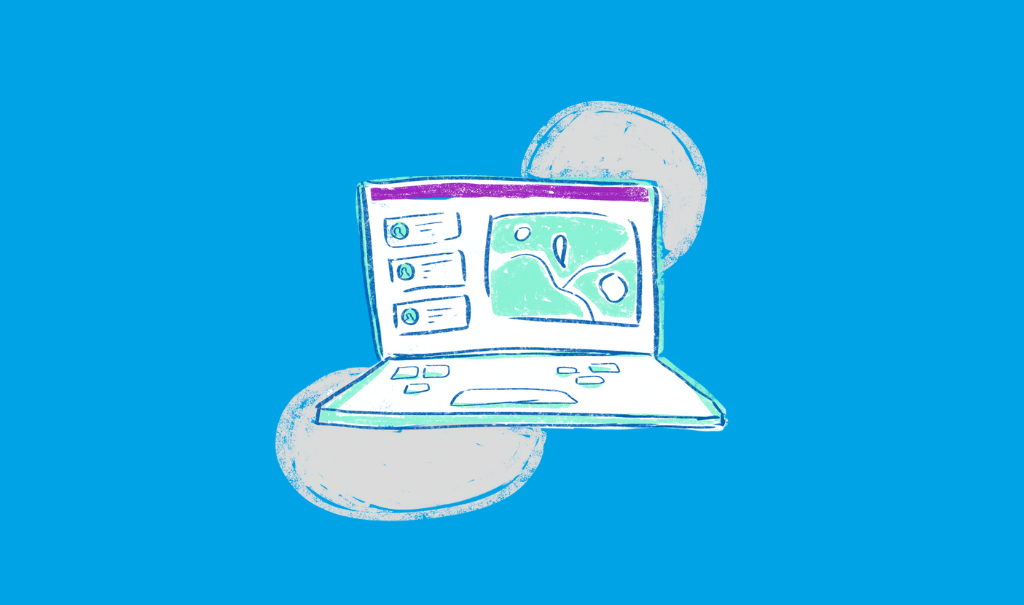
August 06, 2021
New to healthcare navigation? Start with digital care guidance.

Ashley Taylor Anderson
Ashley is Senior Marketing Manager at Amino. She's a content strategist and communications professional who's passionate about improving the U.S. healthcare experience for consumers.
If you’re thinking about adopting a healthcare navigation solution for your benefits program, digital healthcare guidance is the best place to start.
If you’ve ever used your insurance plan’s provider directory, dug through doctor reviews on Yelp, or searched for an urgent care clinic in the wee hours of the morning, you understand why healthcare navigation is an important employee benefit. Figuring out where to get care is complicated and confusing—and it’s gotten even more challenging with the ever-growing suite of digital and in-person health programs available through employer benefits programs. Having a solution that points plan members in the right direction and helps them make smarter decisions can support a better healthcare experience while also substantially impacting plan costs and population health.
Recognizing the value of healthcare navigation is one thing, but choosing a solution is another entirely. There are many different kinds of healthcare navigation offerings out there on the market today—advocacy services, concierge hotlines, medical second opinion services, and price transparency tools, to name a few—so how do you choose which one(s) to implement for your organization?
If your company is just getting started with navigation solutions, we recommend a digital healthcare guidance platform as the easiest, highest-impact place to start. Here are four reasons why.
Digital healthcare guidance delivers a solid return-on-investment.
Since advocacy and medical second opinion services rely on human talent and cover a wide range of clinical and benefits needs, they often come with a heftier price tag than a digital healthcare guidance solution that scales across any population size. And since the PEPM cost is lower, you’ll see a faster return on your investment as you divert plan members away from overpriced, low-quality care options.
Another key advantage of a digital healthcare guidance solution is the ability to identify exactly which actions lead to cost savings for your plan. By tracking in-platform activity, your guidance vendor can show you what topics were searched, which providers were contacted, what sponsored benefits received the most engagement, and how many appointments were booked with which types of doctors. It can be more difficult to attribute value to an offline solution, especially if the member has to take additional steps to book an appointment or follow up with their doctor based on an expert’s advice.
Digital healthcare guidance provides data-driven healthcare recommendations.
Advocacy, concierge, and medical second opinion services employ experts who help members answer their healthcare questions. These person-to-person interactions can have a variable impact on healthcare outcomes depending on an individual clinician or advocate’s skills, personal network, and training. Even the most experienced representatives can’t know every single doctor, facility, or benefit available to a member—let alone which ones might be best for their specific needs and preferences.
Instead of relying on human expertise or opinion, digital guidance solutions rely on data from medical claims and quality measure sets to identify the best doctors, facilities, and benefits programs for a member’s personal health needs and plan design. Powered by large datasets and complex statistical models, these solutions can give highly personalized, objective care recommendations at scale.Guided by data-driven recommendations, members are more likely to find and use optimal providers and benefits at the right time.
Additionally, digital guidance platforms support a more targeted utilization of your plan networks. Data models can surface lesser-known, higher quality, lower-cost doctors and facilities that an individual clinician or advocate may not be aware of.
A digital guidance platform supports your entire population.
Advocacy and medical second opinion services are most valuable for members who have complex care and benefits needs that require nuanced evaluation and triage. But only a small percentage of your population falls into this category—the majority of plan members have routine, relatively infrequent health needs.
A digital healthcare guidance platform is a more flexible option that supports your entire population. Every member can hop into the platform whenever a health need arises and get quick, reliable recommendations on where to get care. Whether they need to find a new PCP, treat an acute health need, manage a chronic condition, or schedule a complex surgery, a guidance platform can help them take the right next step—and they’ll get this support at a fraction of the cost of a human-powered navigation service.
Digital healthcare guidance is convenient for your plan members.
Most advocacy, concierge, and medical second opinion services have defined call center and online support hours, which may not work with your staff’s work schedules and personal commitments. The beauty of a digital healthcare guidance platform is that it's available 24/7 on any device, which means members can access it any time, anywhere.
Leading platforms like Amino Guidance provide added convenience by integrating online appointment booking, employer-sponsored health benefits into search results, a cost calculator to provide up-front estimates on how much services might cost, an insurance dashboard with health plan accumulator and benefits information. Members can access all the information they need to make smart healthcare decisions all in one place, reducing app fatigue and confusion about where to go for what.
Summing up
If you’re new to the world of healthcare navigation solutions, digital healthcare guidance is the best place to start. Not only will you get a flexible platform that can support a variety of different health needs, but you can also get up and running quickly to drive cost savings for your plan, better understand your population’s underlying conditions and utilization patterns, and provide a seamless, simplified access point for members to start their healthcare search process.
Ready to take the next step with healthcare navigation? Request a demo of Amino’s Guidance platform today.
Connect with our Partnership Team
Want to learn how we can help your members transform their healthcare experience in 2025?